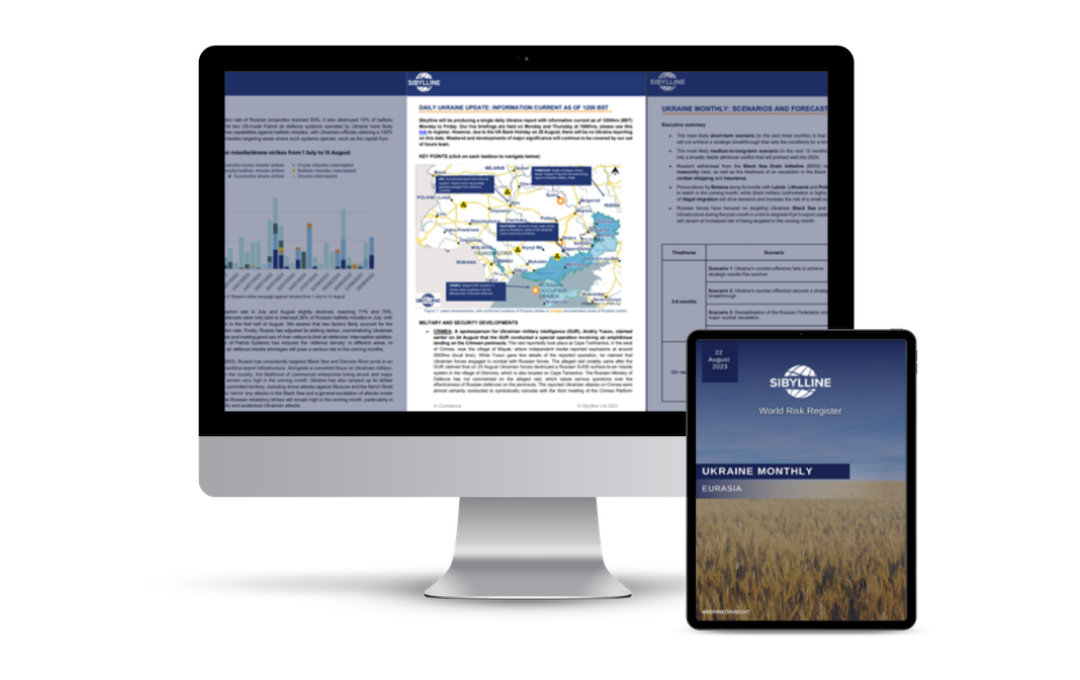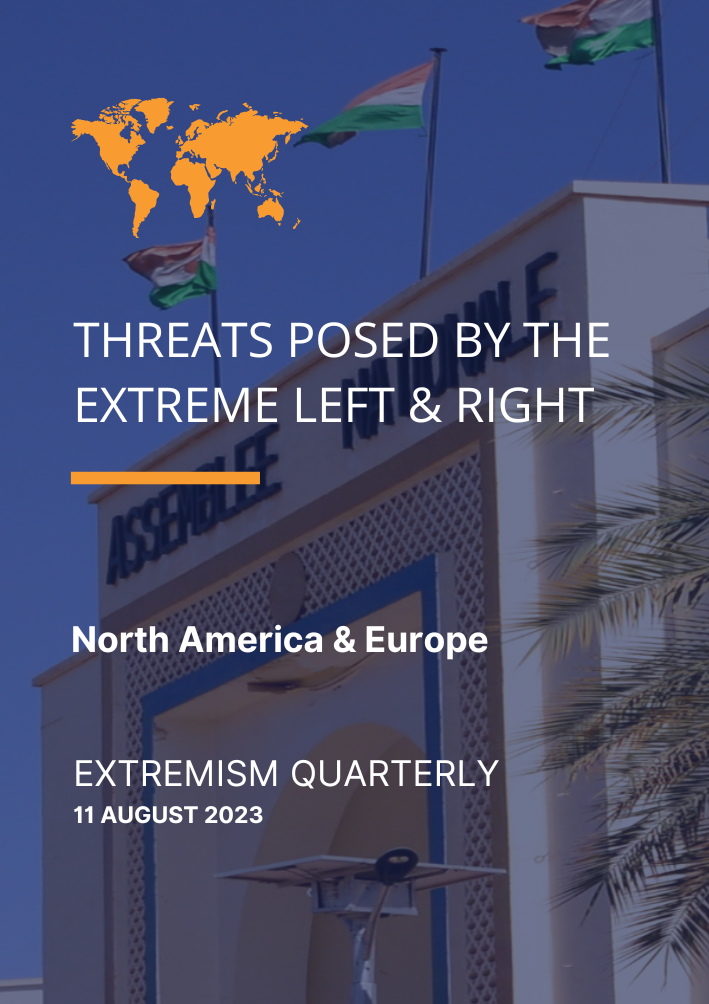EXTREMISM QUARTERLY: THREATS POSED BY THE EXTREME LEFT & RIGHT
11 AUGUST 2023

On 6 January 2021, the US was shocked by a deadly riot which gripped the capital Washington DC. Catalysing the unrest were far-right extremist groups, several of which co-operated with each other to co-ordinate their actions. Following an investigation by the US House Select Committee on the 6 January attack, the former president, Donald Trump, was indicted on 1 August 2023 on felony charges related to his alleged attempt on 6 January to overturn the results of the 2020 presidential election. This marks the third time in four months that Trump has been criminally charged; at least one other indictment is likely between August and September. In the build-up to the 2024 presidential election and in the context of Trump’s extraordinary legal circumstances, it is possible that the former president’s fervent far-right supporters will carry out acts of extremist violence against federal government and/or Democratic Party personnel or facilities in the coming months.
This Extremism Quarterly report aims to assess the overall threat posed by far-right extremist groups in North America more broadly, as well as in Europe, where there has been a notable increase in the number of groups which deny the legitimacy of functioning states as federal republics. More worryingly, we assess that the far-right threat in Europe will be exacerbated by the war in Ukraine. There is a realistic possibility that movements which currently pose a low threat across the continent due to the robust intelligence services therein will be bolstered by far-right extremists who have seized the opportunity to gain battlefield experience in Ukraine; their existing connections to organised crime will likely drive weapons proliferation risks across Europe when the war ends or if it freezes.
However, a comprehensive assessment of the threat posed by actors inhabiting one extreme end of the political spectrum cannot be achieved without exploring the other. In the wake of an unprecedented spate of climate-related disasters across the world in recent months, far-left extremists’ collaboration with traditional climate activists will elevate security risks for companies perceived to facilitate climate change. In addition, anti-capitalist and/or anti-technology ideologies will drive cross-sectoral risks for businesses and their leaders.
Furthermore, an uptick in far-right activity will likely encourage far-left extremist entities to engage in violence, either through planned attacks or spontaneous unrest during counter-protests at political rallies. As ever, the risks facing businesses will increase in tandem with any such developments; these range from bystander risks for individuals and assets located in the vicinity of unrest to reputational (as well as physical security) risks for firms which are perceived to espouse values or beliefs traditionally associated with one end of the political spectrum or the other.
This report will also assess the cyber angle, as well as how social media platforms and cryptocurrencies are used by extremist entities to organise and fund their activities.

